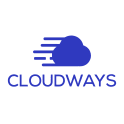9 Best Alternatives to Vercel in May 2024
Alternatives & Competitors to Vercel
- 1. GitHub
- 2. DigitalOcean
- 3. Webflow
- 4. Cloudways
- 5. Heroku
- 6. Buddy
- 7. CircleCI
- 8. Myget
- 9. Openshift
Here are competitors or alternatives to Vercel and other similar Web Development software. You need to consider some important factors when choosing a tool like Vercel for your business: the main features of each solution, ease of use of user interface, pricing or value for money for instance. Each software has its pros and cons so it's up to you to choose the best alternative to Vercel that meets the needs of your small business. To help you compare each app and choose the right solution, we have put together a list of the best competitors of Vercel. Discover sofware like GitHub, DigitalOcean, Webflow or Cloudways.
List of Alternatives to Vercel
From Web Development tools, we have selected the best alternatives to Vercel based on reviews for each solution and similarities with Vercel. Of course, each solution has its benefits and drawbacks, and its own features but, whether you are a small business, a startup or a large enterprise, you will find the right choice that empowers your projects.

Description
The online solution GitHub allows you to store the source code of your IT project. You can thus keep the history of your modifications and share your code with your collaborators, your partners or your customers.
GitHub compared to Vercel
GitHub has better positive reviews compared to Vercel: 98 vs 91
GitHub is better at customer service than Vercel: 4.4 vs 4.0
Vercel is more user friendly than GitHub: 4.5 vs 4.4
Vercel is better at value for money than GitHub: 4.7 vs 4.6
GitHub has more features than Vercel: 42 vs 8
GitHub: Pros & Cons
Best features
-
- Store and secure your code
-
- Access development environments
-
- Secure your software applications
-
- Collaborate with ease
-
- Automate your workflows
-
- Visualize your project
-
- Write higher quality code
-
- Leverage the power of AI
GitHub pricing
Free
Team
$4 / user / monthEnterprise
$21 / user / month
Description
Easily develop and deploy your apps in complete security. Scale your business and manage your infrastructures with confidence.
DigitalOcean compared to Vercel
Vercel has more positive reviews than DigitalOcean: 91 vs 86
DigitalOcean is better at support than Vercel: 4.5 vs 4.0
Vercel pricing plans are more competitive than DigitalOcean: 4.7 vs 4.5
DigitalOcean: Pros & Cons
Best features
-
- Hosting and storing
-
- Database management
-
- Tools for devs
-
- Calculation
-
- Object Storage
-
- Kubernetes
-
- Load Balancers
-
- Flexible Droplets
DigitalOcean pricing
Droplets (Virtual Machines)
$4 / monthSpaces (Object Storage)
$5 / monthVolumes (Block Storage)
$10 / monthLoad Balancers
$12 / monthKubernetes
$12 / monthDatabases (Fully Managed)
$15 / monthPopular

Description
Webflow offers a drag-and-drop visual interface that makes it possible to build and deploy beautiful websites without coding. Webflow then translates your designs into code and online you go.
Webflow compared to Vercel
Webflow has better positive reviews than Vercel: 93 vs 91
Vercel is better at ease to use than Webflow: 4.5 vs 4.0
Vercel is better at value for money than Webflow: 4.7 vs 4.2
Webflow is more versatile than Vercel: 69 vs 8
Webflow: Pros & Cons
Best features
-
- Customizable templates
-
- CMS (Content Management System)
-
- Interactions and animations
-
- Hosting
-
- Visual website builder
-
- Responsive design
-
- E-commerce capabilities
-
- SEO optimization
Webflow pricing
Starter
FreeEnterprise
Contact salesBasic
$18 / monthCMS
$29 / monthBusiness
$49 / monthPopular

Description
Cloudways is the tool that will help you launch a faster website in no time. You choose from top servers such as AWS, Digital Ocean, or Google Cloud, and configure your website's launch in a few clicks.
Cloudways compared to Vercel
Vercel has better positive reviews compared to Cloudways: 91 vs 89
Cloudways is better at customer service than Vercel: 4.5 vs 4.0
Vercel is better at value for money than Cloudways: 4.7 vs 4.6
Cloudways is more versatile than Vercel: 26 vs 8
Cloudways: Pros & Cons
Best features
-
- Improve your website's speed and performance
-
- Easily manage your website's launch
-
- Get access to expert support
-
- Simplify scaling by cloning your website
-
- Built-in CDN to boost your website's speed
-
- Seamless integration with your favorite tools
-
- Hassle-free server management
-
- Optimize your website's security
Cloudways pricing
Digital Ocean Data Centers
$54 / monthGCE Data Centers
$84 / monthAWS Data Centers
$92 / month
Description
Heroku brings the value of simplicity, scalability, and flexibility to businesses. With Heroku, developers can easily deploy, manage, and scale their applications without worrying about infrastructure maintenance. It allows businesses to focus on building and improving their products while Heroku takes care of the underlying infrastructure.
Heroku compared to Vercel
Heroku has better positive reviews compared to Vercel: 96 vs 91
Vercel is more suitable for small businesses thanks to its good value for money than Heroku: 4.7 vs 4.2
Heroku has more options than Vercel: 24 vs 8
What's the difference between Heroku and Vercel?
When comparing Vercel and Heroku, both platforms offer robust solutions for hosting and deploying web applications, but they have distinct primary focuses that may influence your choice depending on your specific project needs. Vercel is tailored towards frontend developers and emphasizes Jamstack architecture, providing seamless deployment for applications built with modern frameworks like Next.js and React. In contrast,
Heroku: Pros & Cons
Best features
-
- PaaS (Platform as a Service)
-
- Git integration
-
- Add-ons
-
- Scalability
-
- Automatic updates
-
- Multiple programming languages
-
- Continuous Integration/Continuous Deployment (CI/CD)
-
- Logging and monitoring

Description
Buddy is the most effective way to build better apps faster. Buddy puts application development on autopilot and makes building apps scalable, creating a decentralized DevOps Marketplace and Automation GRID that challenges how today’s developers build, test and deploy their apps.
Buddy compared to Vercel
Buddy has better positive reviews compared to Vercel: 98 vs 91
Buddy is better at customer service than Vercel: 4.5 vs 4.0
Buddy is more user friendly than Vercel: 5.0 vs 4.5
Vercel is better at value for money than Buddy: 4.7 vs 4.5
Buddy has more features than Vercel: 31 vs 8
Buddy: Pros & Cons
Best features
-
- Business growth resources
-
- One-stop shop
-
- Global network
-
- Exclusive deals
-
- Buddy’s comprehensive SaaS marketplace
-
- Personalized recommendations
-
- Top-tier SaaS experts
-
- Free trials
Buddy pricing
Free
Pro
$31 / monthHyper
$106 / month
Description
CircleCI helps your development teams to better collaborate through continuous integration. Each commit goes through an automated pipeline that tests your code, finds bugs, and deploys to production when all the lights are green.
CircleCI compared to Vercel
CircleCI has better positive reviews than Vercel: 98 vs 91
CircleCI is better at customer support than Vercel: 4.5 vs 4.0
Vercel's user interface is more convenient than CircleCI: 4.5 vs 4.0
Vercel pricing plans are more competitive than CircleCI: 4.7 vs 4.2
CircleCI is more versatile than Vercel: 43 vs 8
CircleCI: Pros & Cons
Best features
-
- Compatible with all languages
-
- Secure and compliant
-
- Superfast caching options
-
- Automated build, test and deployment
-
- Advanced workflows
-
- Integration ecosystem
-
- Flexible and customizable
-
- Automatic parallelism
CircleCI pricing
Free
Performance
$15 / monthScale
$2000 / month
Description
MyGet is a Universal Package Manager that integrates with your existing source code ecosystem and enables end-to-end package management. It supports NuGet, npm, Bower, Maven, Python, and VSIX and other package managers. With MyGet, you can create your own public or private feeds for your organization or team. It also provides build services, adding a powerful CI/CD pipeline to your workflow.
Myget compared to Vercel
Vercel is a better solution based on percentage of positive reviews than Myget: 91 vs 87
Vercel is a better solution for customer support than Myget: 4.0 vs 3.9
Vercel's user interface is more convenient than Myget: 4.5 vs 4.3
Vercel pricing plans are more competitive than Myget: 4.7 vs 4.1
Myget is more versatile than Vercel: 52 vs 8
Myget: Pros & Cons
Best features
-
- Package Management Support
-
- Centralized Platform
-
- Integration Capabilities
-
- Security Features
-
- User-Friendly Interface

Description
OpenShift is a cloud-based, open-source platform developed by Red Hat. It's designed to automate the deployment, scaling, and operations of applications so developers can focus on writing the code for their business, startup, or next big idea. OpenShift provides support for various programming languages and integrates with multiple developer tools for continuous integration/continuous delivery (CI/CD).
Openshift compared to Vercel
Openshift has better positive reviews than Vercel: 96 vs 91
Vercel is better at customer support than Openshift: 4.0 vs 0.0
Vercel's user interface is more convenient than Openshift: 4.5 vs 0.0
Vercel pricing plans are more competitive than Openshift: 4.7 vs 4.4
Openshift is more versatile than Vercel: 14 vs 8
Openshift: Pros & Cons
Best features
-
- Platform as a Service (PaaS)
-
- Scalability
-
- Containerization
-
- Integrated Development Tools
-
- Support for multiple languages
